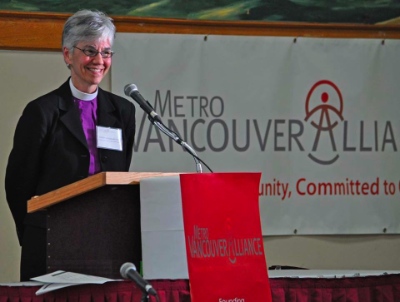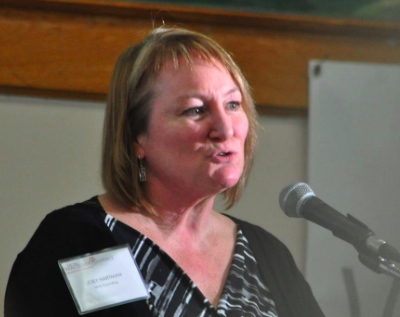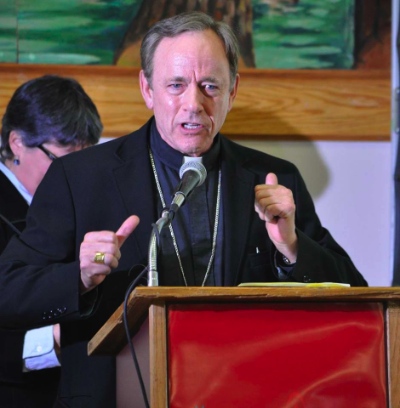Lower Mainland Christians are hopeful the newly formed Metro Vancouver Alliance – a broad, non-partisan coalition that includes people of faith – will develop solid solutions to some of the critical social issues facing their communities.
“We see so much human suffering around Metro Vancouver,” says Paul Schratz, speaking for the Roman Catholic Archdiocese of Vancouver, “and this is a chance for us to work together and make concrete changes rather than just issuing recommendations.”
The MVA brings together 40 organizations representing 200,000 people, including union locals, youth groups, neighbourhood houses, co-ops, community non-profits and churches that are affiliated mostly with the mainline denominations.
The fact they set aside sometimes major differences so they could work together on issues they all care about “makes for a powerful movement,” says Vancouver & District Labour Council president Joey Hartman.
Schratz agrees. “We have these preconceived ideas of each other, and [Catholics are] as guilty as anyone else,” he says. “We need to find these opportunities to work with other people. That breaking down of barriers can only be a good thing.”
As a lead-up to a founding assembly on March 19, members spent nine months in a “listening campaign” to discern the concerns that matter most to them. The result, says North Vancouver Anglican deacon Andrew Wilhelm-Boyles, is they “will only move forward on issues on which all of the members can agree unreservedly.”
Those issues are affordable housing, poverty, public transportation and loneliness.
The next phase will be to train the teams studying these issues how to craft practical and achievable solutions, and how to engage the public and persuade municipal politicians – who will be facing their electorates in November – to support them.
“They’re learning the savvy way, the smart way, the collaborative way to approach these issues,” says Wilhelm-Boyles. “That’s a better recipe for success than simply doing demonstrations and then going home. People are committed to this.”
For the churches, being part of the MVA is also another way for them to fulfill their God-given mandate to serve the poor, the homeless and the marginalized in their communities.
“It’s so obvious, especially now,” says Schratz. “We’re getting a very solid reminder from Pope Francis that if we’re not living out the gospel, then we’re not really being the church [God’s] calling us to be.”
As well, Jeremy Bell, executive minister of Canadian Baptists of Western Canada, so far the lone evangelical group in the MVA, hopes churches will “be an explicitly Christian part of the conversation, [declaring the] full gospel, not simply a social gospel.”
“Incarnation means being in places that are inconvenient and uncomfortable. There will be times when that is true within MVA, but up to this point it’s been a good experience,” he says. “If we focus on the poor, we will by the grace of God make progress.”
This model of community organizing is not new. About 60 similar groups already exist in the US, England, Germany, Australia and elsewhere. “They have shown,” says Wilhelm-Boyles, “that this kind of concerted, careful, intelligent, well-thought-out advocacy approach actually works.”
Metro Vancouver Alliance is holding its Annual General Meeting this Thursday (June 5).
This article was first printed in ChristianWeek.




It is a welcome opportunity for an Industrial Areas Foundation based alliance such as MVA to be in greater Vancouver. It has been a long time coming, with some of the founders now dead, others departed to other fishing or hunting grounds, and some of us moving on in modest attempts to encourage those presently not a part of MVA, because they are not organized, to become so. It will be a constant temptation of MVA to take short-cuts; to by-pass the hard, prolonged,relational work of community organizing for quick fixes on popular issues that gain quick media attention. May the kind of justice that Ed Chambers and Reinhold Niebuhr spoke of soon occur — justice as an organized balance of power for meaningful negotiations to happen between the haves and the have-nots.
Barry
The Metro Vancouver Alliance continues to be lopsidedly “Faith” dominated though this is changing rapidly. Additionally, the “Faith” sector is composed, for the present, practically entirely of Christians. This, too, we hope will change over future months. On the other hand, within the Christian “camp”, our evangelical brothers and sisters are considerably under-represented and I am particularly grateful that my own Canadian Baptists of Western Canada Executive Minister, The Reverend Jeremy Bell, is taking a leading position on our behalf. Thank you for including his observations in this report!